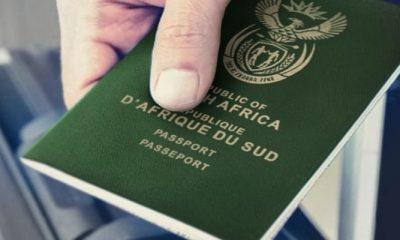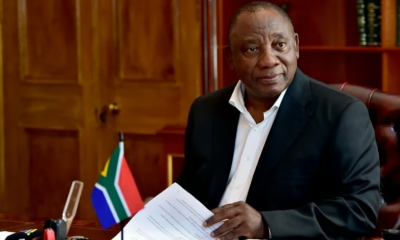411
How to Lose R50 Billion a Year: The Wealth Tax Proposal That Could Backfire

As South Africa’s political leaders scramble to finalise the 2025 budget, a fierce debate has erupted over how best to raise revenue—and whether the country can afford a wealth tax.
Populist and leftist parties in parliament, backed by advisory bodies like the Parliamentary Budget Office (PBO), have argued for scrapping the upcoming VAT hike in favour of new taxes on the wealthiest 5% of earners.
Their case is simple: taxing the rich could raise around R38 billion—enough to offset the shortfall that would result from not raising VAT and adjusting tax brackets for inflation.
But the National Treasury and tax experts have issued a clear warning: such a move could cripple the country’s tax base and cost South Africa far more than it would gain.
Why a Wealth Tax Sounds Good—But Might Be a Disaster
On paper, taxing the rich to ease the pressure on ordinary South Africans sounds like a win-win. The PBO argues that VAT is regressive and worsens the cost-of-living crisis, while the wealthy are better positioned to absorb additional taxes.
But according to Treasury’s analysis, the downside risk is massive.
South Africa’s top income earners—just three brackets—are expected to contribute more than 60% of all personal income tax in 2025/26, equating to nearly R500 billion in revenue.
If just 10% of these taxpayers decide to end their tax residency or move investments offshore, Treasury estimates a loss of R49 billion a year—before counting indirect taxes and broader economic ripple effects.
“Introducing a wealth tax will generate limited revenue and potentially endanger South Africa’s tax base,” Treasury said bluntly.
What the Experts Say: It’s Been Tried—and Failed
Tax experts and even SARS commissioner Edward Kieswetter have echoed Treasury’s concerns. They point out that:
-
Wealthy South Africans are already taxed on multiple fronts: estate duties, capital gains, donation tax, transfer duties, property taxes, and more.
-
High-net-worth individuals are internationally mobile and can easily relocate to lower-tax jurisdictions.
-
Capital flight is real, and once that wealth leaves, it doesn’t come back.
Globally, the wealth tax experiment has largely failed. Of the 20 countries that once implemented such taxes, only four still maintain them. Others abandoned the idea due to:
-
High administrative costs
-
Complex enforcement
-
Low returns
-
Significant capital outflows
Treasury’s Bottom Line: Don’t Risk the Core Tax Base
Treasury argues that South Africa’s tax base is already narrow and highly dependent on a small pool of top earners. That base must be protected to ensure fiscal sustainability.
Rather than adding new taxes, Treasury suggests focusing on improving compliance, closing loopholes, and strengthening existing mechanisms, which already pull in R20–R24 billion annually from wealth-related taxes.
For example:
-
Capital gains tax: Over R15 billion
-
Transfer duties, estate duties, and donation tax: R5–R8 billion combined
-
Ad Valorem taxes: Significant contributions on luxury goods
“The personal income tax base is critical for fiscal sustainability,” Treasury stressed. “A wealth tax may potentially erode it.”
A Risky Gamble with High Stakes
As negotiations over South Africa’s 2025 budget continue, the pressure to find alternatives to the VAT hike is understandable. But a wealth tax might be the wrong tool for the job—risking long-term damage to the economy for short-term political wins.
South Africa needs smart fiscal policy, not populist quick fixes. The question isn’t just how to raise revenue, but how to keep the taxpayers who are already footing the bill.
{Source BusinessTech}
Follow Joburg ETC on Facebook, Twitter , TikTok and Instagram
For more News in Johannesburg, visit joburgetc.com


























